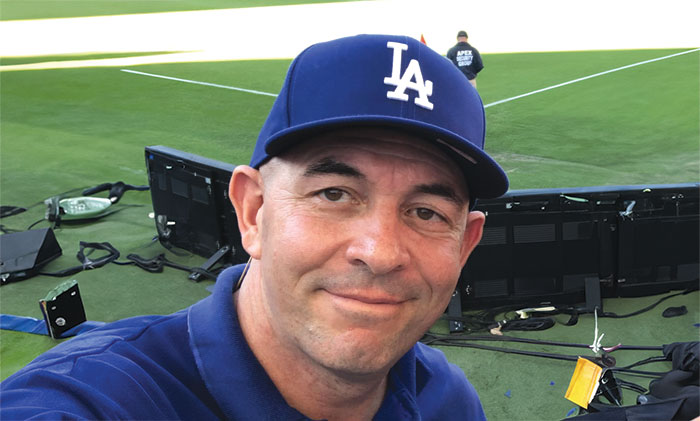The flier seen here appeared on the campus of San Francisco State six years ago. It, without much imagination, was a spin on the blood libel, and it created quite the stir. At the time, the Second Intifada was in full swing and creating a tidal wave of anti-Israel attacks on a few American campuses. SF State achieved the early ignominy, followed shortly by Berkeley and Columbia University. UC Irvine, during the past few years, moved to the front of the class and has become synonymous with anti-Semitism. I’ve blogged about this many, many, many, many times.
But in today’s Jewish Journal, I assessed the situation at Irvine, which has improved since Michael Drake took over as chancellor, and cast it into the context of the broader academic landscape.
Elsewhere the M.O. for attacking the Jewish state has evolved since anti-Israel campus activism first exploded onto the scene in 2002 during the Second Intifada. It has since taken root in academic departments and been emboldened by the outspoken criticism of a former U.S. president. Although many college campuses appear to have dropped the vitriol and the confrontational protests over Israel, the attacks on the Jewish state have moved deep inside the Ivory Towers. Despite an ethos that university students should question everything, many feel uncomfortable and unprepared in challenging their professors. Apathy, pro-Israel campus advocates say, is quietly eroding support for the Jewish state, even among Jews.
For this story, I spent two days at UCI in May, on the first and last days of Palestinian Awareness Week, which this year was dubbed “Never Again? The Palestinian Holocaust.” Despite the improvement Jewish community leaders and student leaders say has occurred, much of which I take at face value, what I saw and hear from Amir Abdel Malik Ali, a rabid critic of the “Zionist Nazis” and Oakland mosque leader regularly invited to Irvine, was disturbing:
“The fall of the American empire, brothers and sisters, means the fall of Zionism, the fall of apartheid!” Malik Ali said in typically fiery oratory. “American empire is going down just like other empires have gone down. So you have to make preparations. Joe and Jane Six-Pack are going to realize that, no, America is not No. 1; no, America is not supreme; no, America is not superior and no America is not the good guy.”
Malik Ali, the imam of an Oakland mosque, was giving the first of his two sermons to conclude Palestinian awareness week. He’s been a favorite speaker of the MSU since early in the Second Intifada. Others have included Muhammad Al-Asi, a Washington imam who calls Israel “the monkey on the American back,” and Finkelstein, who the previous week repeated his claim that Jews abuse memories of the Holocaust and exaggerate anti-Semitism for political gain and said the IDF intentionally killed Palestinian children.
Four Muslim students stood behind Malik Ali while he spoke, holding a large banner proclaiming, “Death to Apartheid.” Some Jewish students were seated in the crowd on the steps above the flagpoles. The president of the Anteaters for Israel was standing behind the large banner, holding a white board on which he wrote statements like “Stop the lies—Israel is a democracy.” Other Jewish students carried signs stating, “Caution—Hate Speech Zone Ahead.”
“The Islamic revival,” Malik Ali continued, “should only be feared by those who support imperialism, colonialism, racism, occupation. Those are the only groups who should fear the Islamic revival. Because when groups like Hamas and Hezbollah—and no these are not terrorists,” he said, bridging into an attack on Israel as an apartheid state and later adding, “The terrorists are the United States; the terrorists are Israel!”
Chants of “Allahu Akbar!” rose from the audience.
Soon after, a group gathered above the steps and, led by Malik Ali and the MSU president, marched down Ring Road chanting:
“Judaism, yes! Zionism, no!”
“Judaism, yes! Zionism, no!”
“The state of Israel has got to go!”
“The state of Israel has got to go!”
After about five minutes, a circle formed and Omar Zarka, MSU president, stepped inside.
“We are not here to feel happy,” he said. “The struggle continues, and it goes on from here today.”
The scene, save for the language of Zarka’s charge, was reminiscent of one from 2007, when a few dozen Muslim students interrupted a lecture by Daniel Pipes, stormed out of the hall and then proceeded through campus, concluding with a pronouncement from one of the participants that “it’s just a matter of time before Israel will be wiped off the face of the earth!”
Often called a radical student organization, MSU has found it difficult to attract good media attention—the Pipes incident was filmed by a Jewish student and aired on Fox News’ “Hannity & Colmes”—which helps explain why UCI Muslim students are tighter-lipped than a grand jury when approached by a journalist. Numerous attempts at speaking generally with Muslim students about their feelings toward Jews were deflected to MSU leadership.
But after Malik Ali’s speech and before being interrupted and told not to speak with this reporter, one of the students holding the “Death to Apartheid” banner opened up.
“Jews are a people of a religion, a faith. Zionism was seen as an idea to bring together, to reinvigorate the Hebrew language and Judaism,” said the unidentified student, who sported a short beard, white kaffiyeh and black headband with “There is one God—Allah” in Arabic script. “But as soon as it turned into exiling a people from land, that’s when it turned from an angelic thought to a satanic thought.”
The official message from the MSU is that they don’t hate Jews, just Zionism.
“I can’t tell by looking at someone if they are Jewish,” Zarka said in an interview limited to one question. “If someone tells me they are Jewish, I don’t assume they are a Zionist. But if somebody tells me ‘I am an imperialist; I think we should go pillage countries,’ obviously I will have a problem with that.”






















 More news and opinions than at a Shabbat dinner, right in your inbox.
More news and opinions than at a Shabbat dinner, right in your inbox.